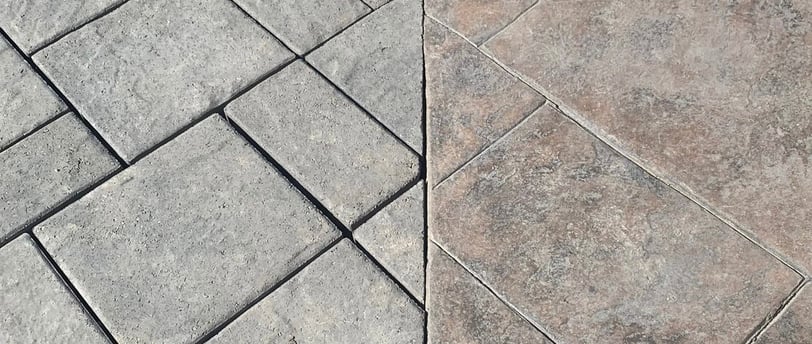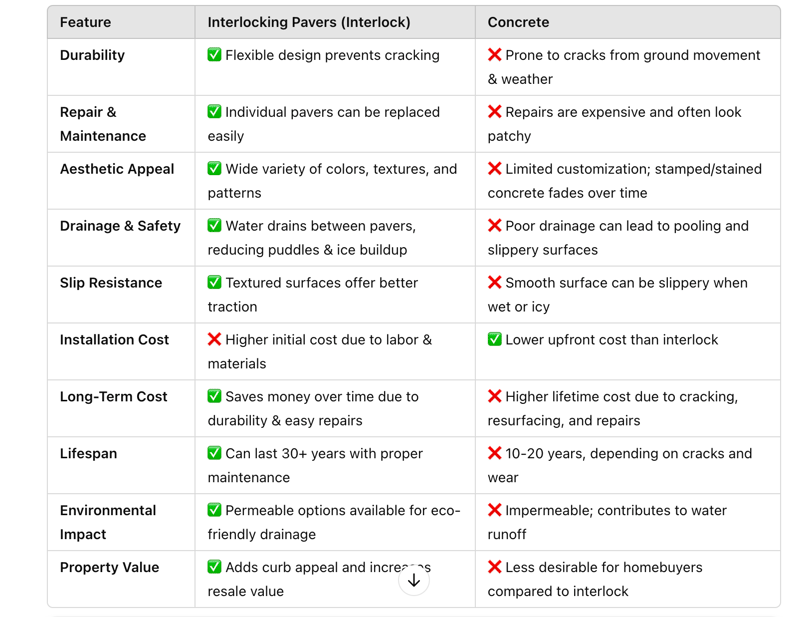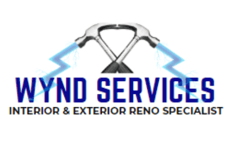Interlocking Pavers Or Concrete?
Two of the most common choices for surfacing are interlocking pavers (interlock) and poured concrete. Which one is better?
3/26/20253 min read


Interlocking Pavers Or Concrete?
When it comes to driveways, patios, walkways, and outdoor living spaces, two of the most common choices for surfacing are interlocking pavers (interlock) and poured concrete. While both materials have their advantages, interlocking pavers consistently outperform concrete in durability, aesthetics, flexibility, and long-term cost-effectiveness.
If you're debating between the two, here's why interlock is the better investment for your outdoor project.
1. Durability & Longevity: Interlock Lasts Longer Than Concrete
One of the biggest downsides of concrete is its tendency to crack over time due to ground movement, freeze-thaw cycles, and heavy loads. Once a concrete slab develops cracks, repairs can be costly and often result in unsightly patches.
✅ Interlock Advantage:
Interlocking pavers do not crack like concrete because they are designed to flex and shift with the ground.
Each paver is installed individually, allowing for natural expansion and contraction without causing major structural damage.
If an interlocking paver does become damaged, it can be easily replaced without disturbing the entire surface.
In contrast, once concrete cracks, it’s permanent—leading to expensive repairs or full replacements.
2. Aesthetic Appeal & Customization: Interlock Offers Endless Design Possibilities
Concrete is typically plain, gray, and unremarkable, though it can be stamped or stained to add some variety. However, even decorative concrete has limitations in design and tends to fade over time.
✅ Interlock Advantage:
Available in a wide range of colors, patterns, and textures, allowing for full customization to complement your property’s style.
Can mimic natural stone, brick, or cobblestone for a high-end look.
Allows for unique patterns like herringbone, basketweave, or random stone layouts, which add visual interest and curb appeal.
Interlock enhances both the beauty and value of your property, making it a great investment for homeowners looking to boost resale appeal.
3. Repair & Maintenance: Interlock Saves You Money in the Long Run
Concrete may seem like a low-maintenance option at first, but once it cracks or stains, fixing it can be a headache. Patching concrete is often visible and unsightly, while full resurfacing or replacement can be expensive.
✅ Interlock Advantage:
If a single paver gets damaged, you can replace just that one piece, rather than dealing with an entire slab.
Weeds and moss can be prevented with proper sealing and polymeric sand, keeping interlock looking clean and polished.
Unlike concrete, which stains easily from oil, rust, and weathering, interlock pavers can be cleaned or resealed to maintain their appearance.
With proper installation and maintenance, interlock can last 30+ years, making it a cost-effective, long- term solution compared to concrete.
4. Drainage & Safety: Interlock Prevents Water Pooling & Slipping
One major flaw of concrete is that it is a solid, non-permeable surface, meaning water cannot drain through it. This leads to puddling, ice buildup, and potential slip hazards.
✅ Interlock Advantage:
Interlocking pavers allow for better drainage because water can seep between the joints, reducing puddles and erosion.
Some interlock systems are even designed to be fully permeable, meaning water can drain directly through the pavers, making them eco-friendly and reducing runoff issues.
The textured surface of interlock provides better grip than smooth concrete, making it safer in wet or icy conditions.
For areas that experience heavy rain, snow, or ice, interlock is the safer and more practical choice.
5. Resale Value: Interlock Adds More Value to Your Property
When it comes to increasing your home’s resale value, curb appeal is key. Concrete, even when stamped or stained, doesn’t add as much perceived value to a home as interlocking pavers do.
✅ Interlock Advantage:
Because of its premium appearance, homebuyers see interlock as an upgraded feature, making your home more desirable.
The longevity and durability of interlock means potential buyers won’t have to worry about expensive future repairs.
Properties with well-designed interlock patios, driveways, and walkways tend to sell faster and at higher prices.
If you’re looking for a long-term investment that increases your home’s worth, interlocking pavers are the superior choice.
Why Choose Concrete? (The Only Reasons You Might Consider It)
Despite its drawbacks, concrete does have a couple of advantages:
Lower Upfront Cost – If you’re on a tight budget and need a quick solution, concrete is initially cheaper.
Faster Installation – Poured concrete takes less time to install than interlock.
However, these benefits are short-term—in the long run, interlock will save you more money on repairs, replacements, and maintenance while providing a more attractive and durable surface.
Final Verdict: Interlock Wins for Long-Term Value & Aesthetics
While concrete may be cheaper upfront, it comes with a higher risk of cracks, costly repairs, and limited design flexibility. Interlocking pavers, on the other hand, offer:
✔ Superior durability (no cracks, long-lasting)
✔ Customizable designs (endless patterns & colors)
✔ Easy maintenance & repairs (replace single pavers instead of resurfacing)
✔ Better drainage & slip resistance (safer for all seasons)
✔ Higher property value (better investment for homeowners)
For a beautiful, long-lasting, and low-maintenance outdoor space, interlocking pavers are the best choice.
📞 Ready to upgrade your outdoor space? Contact us today for a free consultation!


Contact Us
Quotes
contact@wyndservices.com
647.270.8131
© 2025. All rights reserved.


